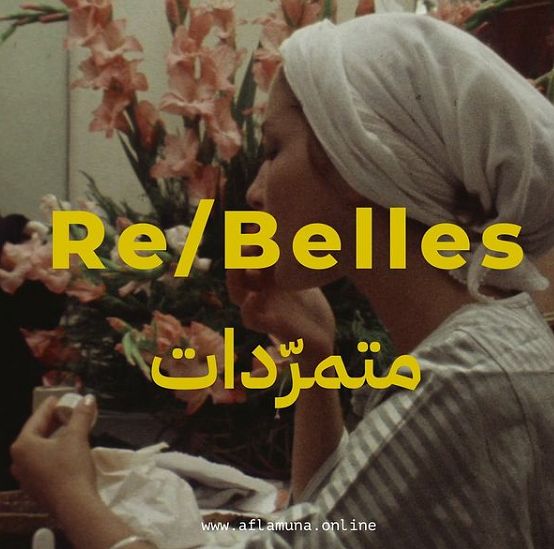Re/belles
Conférences / FilmsDu 03/05/2021 à 00:00 jusqu'au 30/05/2021 à 00:00
To mark the recent launch of Cinematheque Beirut’s online database, Metropolis Cinema Association would like to pay tribute to the rebellious role women played in shaping the histories of cinema in Lebanon. The aim of this database is not only to establish a filmography of Lebanese film production but to propose various and new ways to read and access this filmography. Women filmmakers and the actresses they filmed populate Lebanon’s film histories revealing how the feminine is multiple and highlighting its power to disrupt. Re/Belles (متمردات) is an online film program that will run during May 2021 on Beirut DC’s streaming platform Aflamuna. The program will feature Leyla Assaf Tengroth’s Al-Sheikha (1994), Jocelyne Saab’s A Suspended Life (1985) and Making Of Nahla (1979), Farouk Beloufa’s Nahla (1979), and Randa Chahal Sabbag’s Souha, Surviving Hell (2001).
Shot between the late 1970s and the early 2000s, the films in this program were all made at a time during which cinema in Lebanon was inventing itself, searching for the possible cinematographic languages to account for the ruptures provoked by the civil wars and their aftermath. The cinematic gestures of these women behind and in front of the camera queered the stereotypes of what it means to be a woman living, working, and loving in the middle east. Al-Sheika, Samar, Nahla, Maha, Hind, Soha, Jocelyne, Leyla, Randa, Rim, Yasmine, Lina, and Nabila resist, as much in fiction as in reality, definitions and rules associated to love, relationships, seduction, professional success, and moral imperatives.
“I defended myself,” responds Sheikha when she is asked at a police station why she stabbed a man that violated her and her little brother. These women’s gestures might be reduced to acts of defense against a highly hostile environment, but we also see that they are ones of resistance and disruption. Earlier that same day, having understood the man’s intentions in wanting to see her younger brother unsupervised, Sheikha asks to join the party and equips herself with a knife she’d acquired at a protest, powerfully claiming: “tonight is going to be a fun night!”
These films do not leave us unscathed as we witness multiple generations of women allowing themselves to stutter, to be confused, to contradict themselves and others, and to experience life in its extremes at the image of the unhinged and dislocated times they lived in. As we watch these films, the words of poet Etel Adnan come to mind, reminding us how much the feminine can be inherently synonymous with rebellion: “I tell myself: art is the search for the feminine, and, in turn, art feminizes the world. Hence its indispensable value to society, and its powers of subversion.”
To see the program click here
LieuOnline

